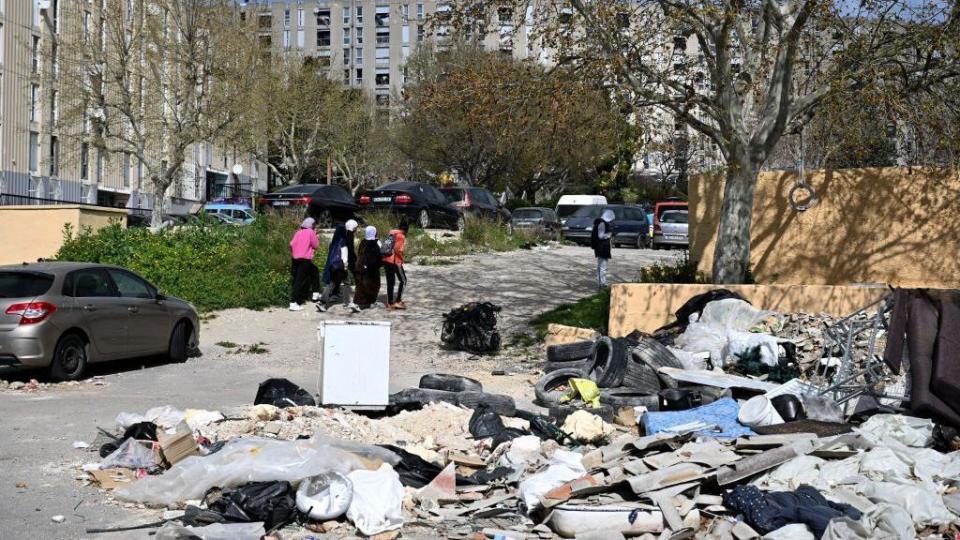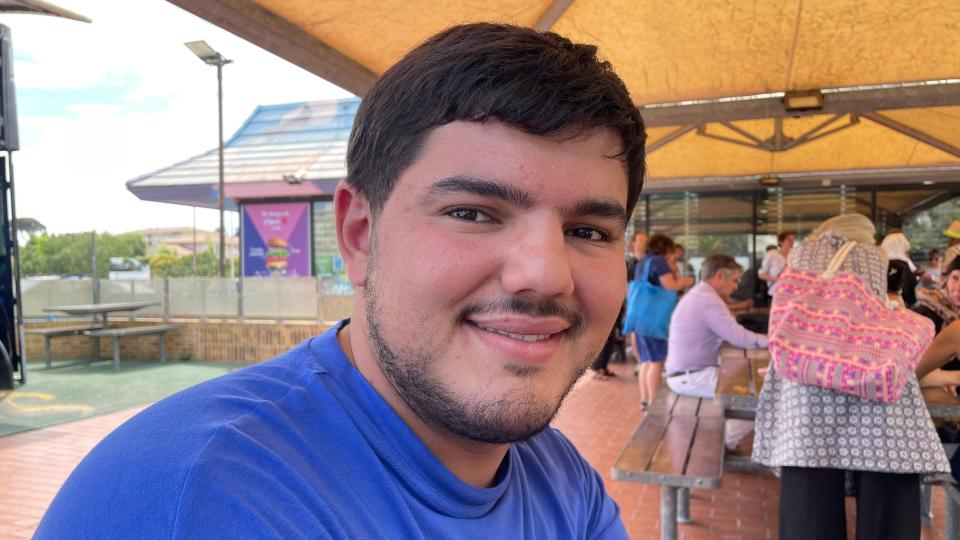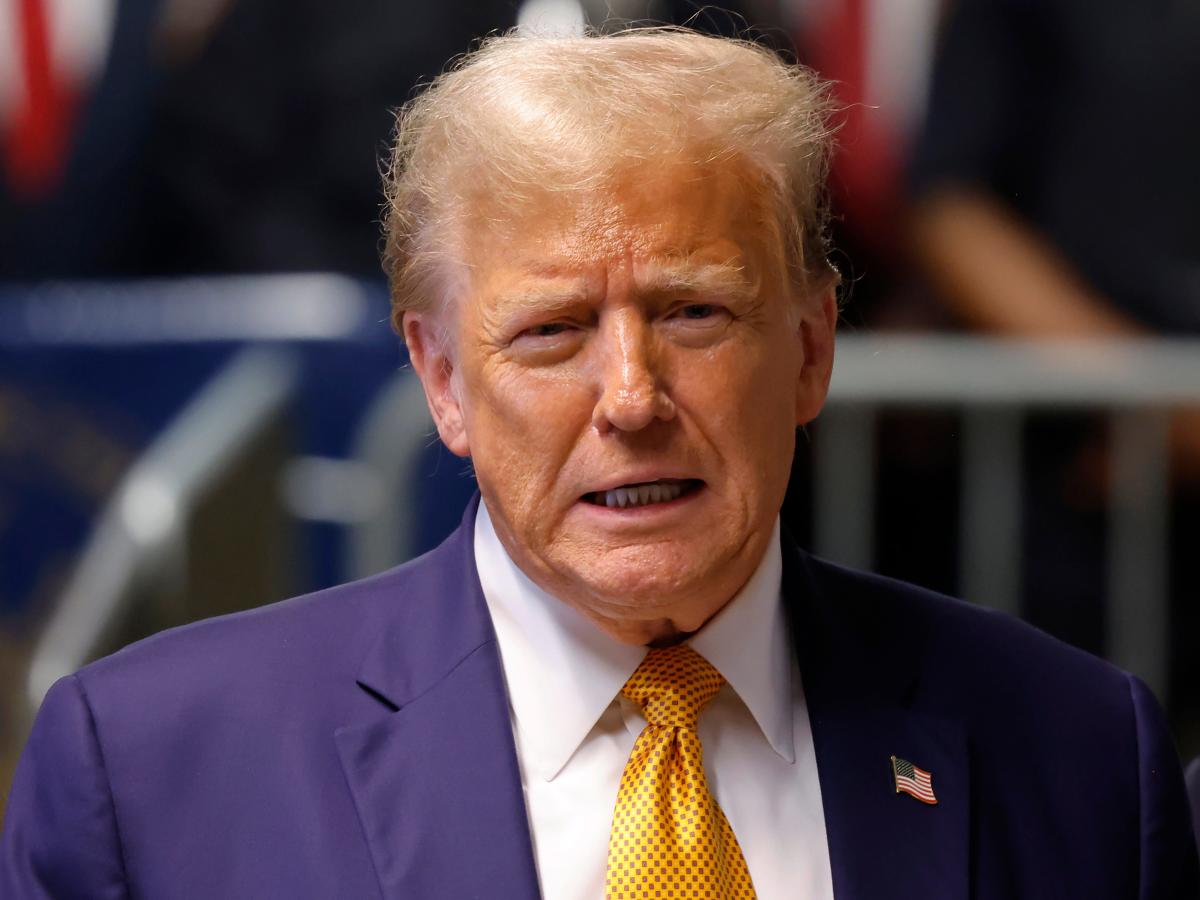First came the loud click of metal on metal, then the shuffle of shoes on gravel, and finally a chorus of polite applause.
On a bright, windy morning this week, thousands of people gathered in a park in the southern port city of Marseille, looking to take a break from thinking about France’s political divisions and instead focus on a beloved local sport: pétanque.
And this was no ordinary game, but a quarter-final match at the World Boules Championships, an annual televised event held on France’s Mediterranean coast that this year coincides with the country’s snap parliamentary elections.
“The show must go on. Pétanque must go on. Smiling must go on,” said Laurence Astier, head of communications for the championships.
“France is of course the best country in the world in this sport. But the others are Thailand and Benin. It is an international sport,” Astier said enthusiastically.
Around her, in the shade of the park’s leafy lanes, the crowd moved between matches, beers in hand, craning their necks to catch a glimpse of the action.
“I lost yesterday,” said George Gonzalez-Gomez, 68, a retired civil servant, with a cheerful shrug.
But even here the discordant cries of polarised French politics sometimes broke through.

“Fachos,” — fascists — said a man at the entrance, waving a copy of La Marsaillaise, the proudly communist newspaper that sponsored the championship. He was referring to supporters of the far-right Rassemblement National, which is likely to win the most seats in the French parliament.
“I support the National Rally. We have to fix the country,” Gonzalez-Gomez responded, blaming immigrants for Marseille’s high crime rate.
“It’s like Brexit. After that it was quieter. Now there’s delinquency, crime and [Islamist] radicalization. As for [President] “Macron, he’s finished,” he said, arguing that France should take back control of its borders from the European Union.
In Marseille, candidates for the Rassemblement National (RN) – the far-right, outspokenly anti-immigration party that won 33% of the vote in the first round of France’s parliamentary elections last week – have avoided media interviews since their electoral success, with the local press calling them “ghost candidates.”
Their members actively try to raise support for their party online.
“We are the last bastion against chaos,” wrote candidate Olivier Fayssat on X.
“Less immigration means fewer homeless people and more money for the people of Marseille,” Gisèle Lelouis, another RN candidate, wrote on the site.


With its luxury yachts, ancient architecture and busy, impoverished neighborhoodsMarseille has always been a chaotic melting pot of a city, due to its location on the Mediterranean coast and its history as a gateway to France and beyond.
In recent years, Rally National has built a strong support base in the south, but has always been strongly challenged by parties of the left and the center. This election has changed that balance, with the centrist candidates of President Emmanuel Macron losing their seats in the city in the first round.
“Macron… is not popular here at all,” said Gilles Rof, the local correspondent for the newspaper Le Monde, who explained that residents have not yet felt the impact of the president’s multi-billion-euro infrastructure project for Marseille and are generally keen to shake things up.
Rof argued that racism was at the root of much of the anti-immigrant sentiment in parts of the city and that RN was playing on people’s legitimate concerns about crime.
“The basis of this mood [for RN] is clearly racism. [Their supporters say] there are too many immigrants and too many Arab people. You hear that all the time. It’s open,” he said.
Much of the crime is linked to Marseille’s powerful drug gangs, which operate – often openly – in the poorer suburbs north of the city.


One afternoon this week, a small crowd gathered in a windswept neighborhood to show their support for their parliamentary candidate, a 20-year-old man of Algerian descent.
“Front Populaire! Front Populaire! Amine Kessaci! Amine Kessaci!” people chanted, naming France’s new left-wing coalition and its young potential deputy.
Mr Kessaci’s social activism, focused on tackling crime and empowering local people, was influenced by the death of his brother in a drug gang-related murder in 2020.
He said migrants are being scapegoated by the far-right for political gain and that poverty and unemployment must be tackled as a priority.
“This election… is a rendezvous with history. The extremists are at the gates of power. [If RN wins] “It will be chaos, like you had in Germany in the 1930s,” he said.
“We must prevent them from waging a war against the poor, a war against foreigners. We must tackle the drug traffickers and help the marginalized.
“The far-right party has no plan, they are just angry. My parents chose this country and I am French,” said the young candidate, before running away to meet the deadline to submit his candidacy for the second round of the election.







